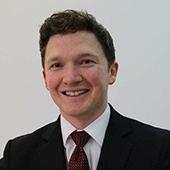The hospitality industry keeps growing for years and it offers a variety of exciting positions.
But what if you don’t have the much-needed hospitality skills? Can you get a job without any hospitality training, food service experience, and similar accomplishments?
The simple answer is: Yes, you can. In this post, we'll go through some tips to maximize your resume when you haven't got much hospitality experience.

1. Don’t hide it
Honesty is the first principle you need to follow during the job hunt. We all want to write an outstanding resume and look great in the eyes of a recruiter, but telling lies about your experience certainly won’t get you too far.
According to HR experts at Resumes Planet, it’s common in hospitality not to have much experience. Therefore, you should not hide the fact that you never worked in a restaurant, hotel, or any other hospitality-related organization. It’s better that you’re upfront about it rather than get caught out by your employers down the track.

2. Focus on your skills
If you can’t really brag about work history, you should concentrate on professional skills that could distinguish you from other candidates. The hospitality industry demands individuals with excellent social intelligence, interpersonal communication, and enthusiasm.
Emphasizing on these traits will convince potential employers that you have the right set of qualities for the job. In these circumstances, previous experience can become less relevant. Often a can-do attitude and positive personality can get you ahead when looking for a hospitality job.
3. Play with your job history
Although knowledge and skills play the most important role in your job search, you don’t want to neglect the part of the resume that reveals your work history, as it still highlights that you do have some sort of working experience.
It’s best to round up previous positions to the year to make them look more extensive. For instance, you might have joined the company in December 2014 and left it in February 2016.
But if you round up to the year it may seem as if you worked there for three full years. As long as you can back your experience, skills, and knowledge it should be reasonable. Ensure of course that what you include on your job history is relevant to the position that you're applying for.
4. Mention non-professional experiences
Many people are involved in community activities, non-for profit organizations, charitable or volunteer work and similar projects that require soft skills and a lot of communication. Some individuals work as freelancers which demands a certain set of traits useful to hospitality companies.
Each one of these non-professional experiences could serve as a good addition to your resume, so don’t forget to mention it. Keep it brief and concise, but always note concrete achievements that reveal your value and professional credibility.
5. Academic background
Okay, so you don’t have a broad experience in hospitality, but what about your academic background? Did you earn a college degree? If yes, you've got an advantage - especially if you studied at a hospitality school. It shows that you are ready to work, and that you have industry knowledge and skills.
If you didn’t gain a college diploma, you should mention other information that demonstrates you’re a relevant candidate. For example, if you completed an online hospitality course or a certificate include that on your resume.
Also if you speak foreign languages, it’s an excellent addition to your resume. There are many other options to consider here, so take your time and brainstorm it before you add it in.
6. Keep learning
It goes a long way when you can demonstrate that despite not having solid hospitality experience, that you are always learning and being proactive about it. Self-learning is a great way to upskill.
So dive into books, listen to podcasts, take short courses, attend networking events, go to speaking events - anything that's going to expand your knowledge and skills will benefit you regardless. It will also be something that you can add to your resume.
Remember that your learning doesn't always need to be hospitality related, because regardless of what you learn, you'll become well-rounded and versatile. You'll pick up skills that can be transferred to your hospitality career and strengthen your personal development overall.
Getting a job in hospitality without any skills or experience might be tricky, but it’s not impossible. Here you’ve been shown some practical tips to help write your resume when you haven't yet gained work experience in hospitality.
Find out how our online hospitality training platform, Typsy, can help you upskill and get career-ready. Start your 10-day free trial and explore our platform now!
 |
Warren Fowler has worked in the hospitality area for 6 years. His bartending experience helped him develop personally and professionally. While growing in his career, he did extensive research on resume writing. |
You might also like